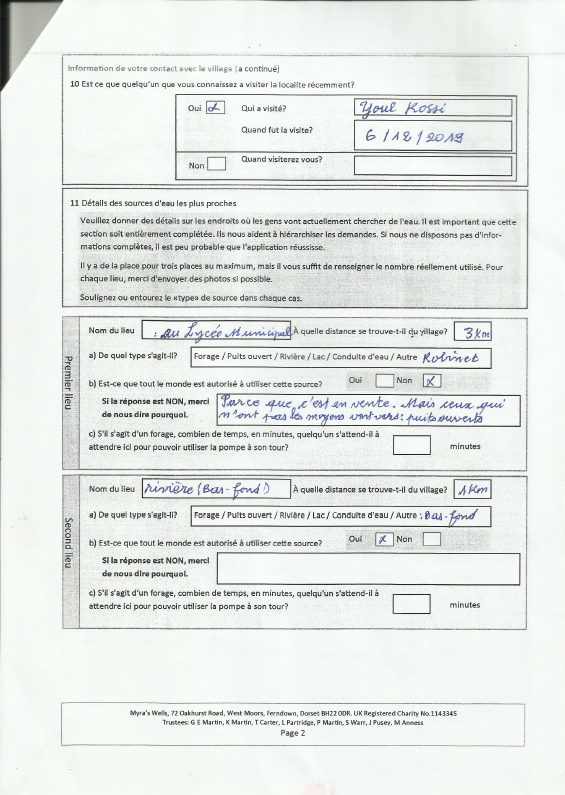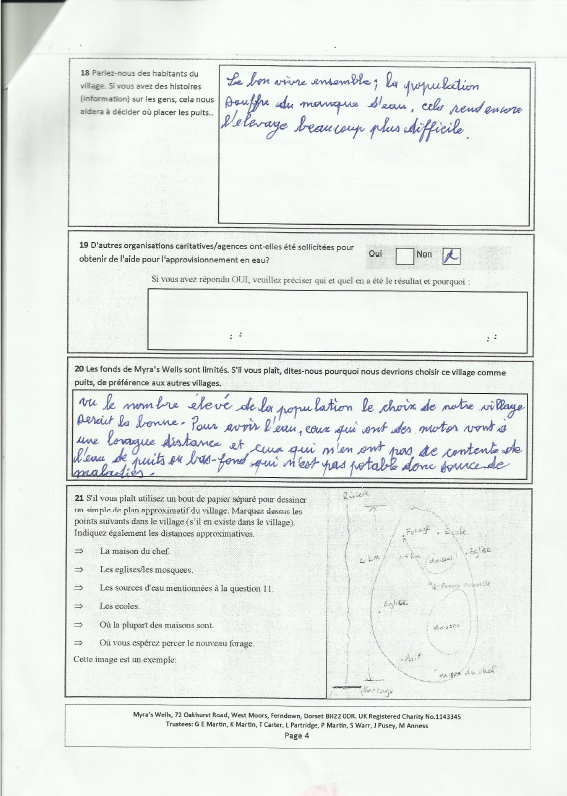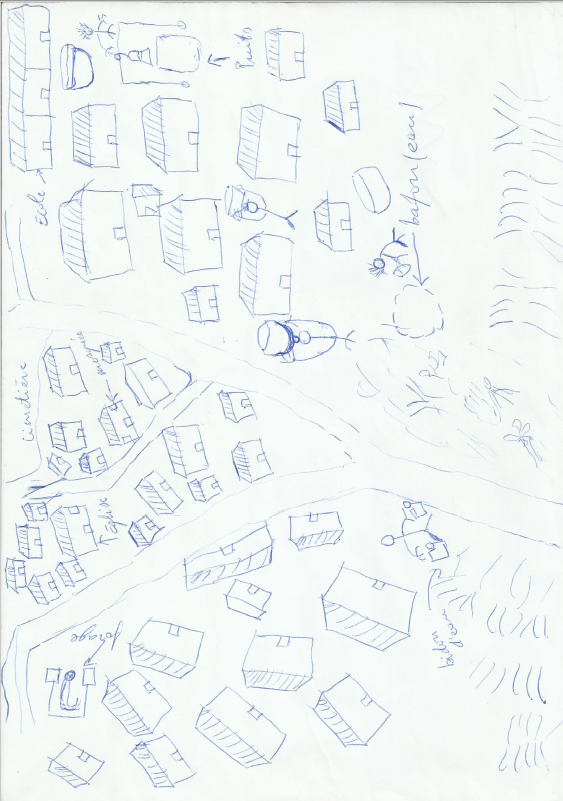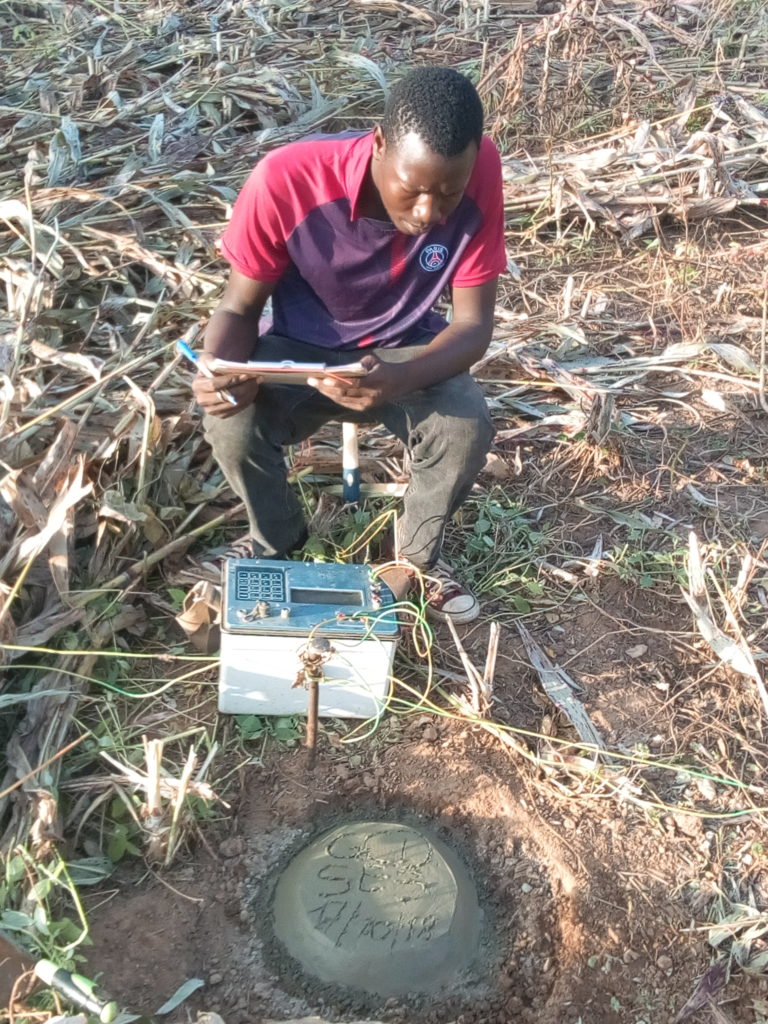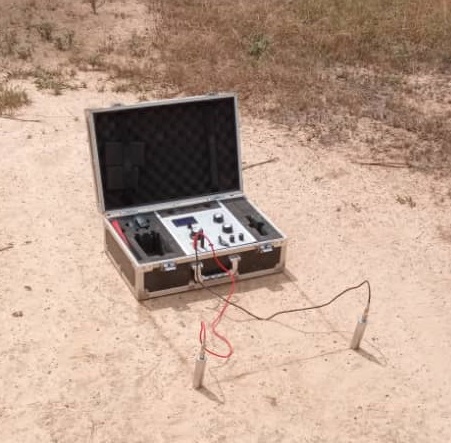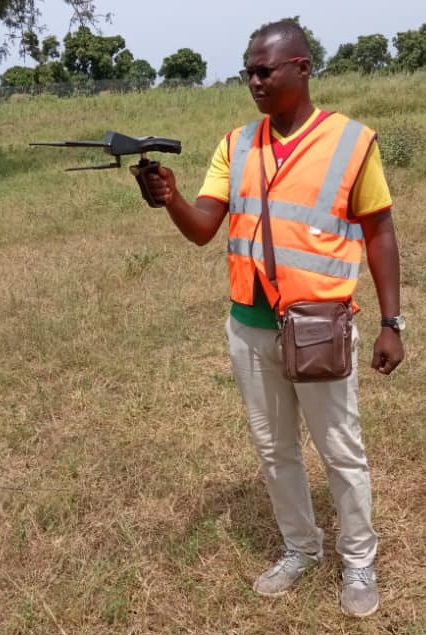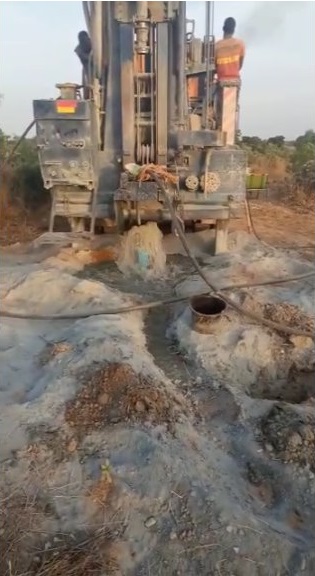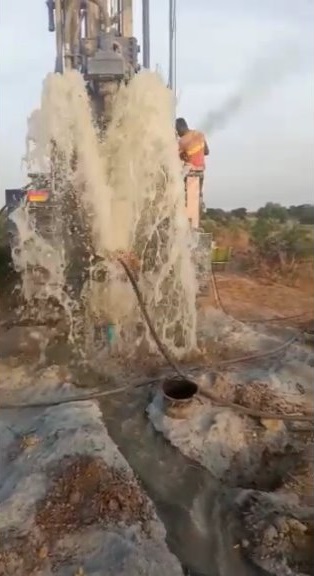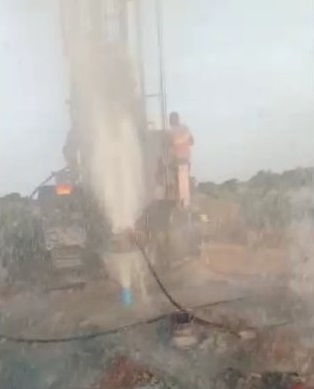This is a vital question! After we have drilled a borehole, there is always a possibility that the water we have found might be contaminated. We have to be sure that it is safe to drink and use in cooking etc.
The drilling process
There are three stages of the drilling process.
1 Choosing places to drill
Myra’s Wells’ vision is to provide water that is safe to drink (and use for all other purposes), in villages and crowded suburbs of larger towns in Burkina Faso. There are still over 7000 such places which do not have sufficient reliable sources of clean water. Pastors and other trusted people bring places to our attention by using an application form. Photos often accompany the forms – these are very helpful. We carefully check the details that are given to try to establish which of these places should be the first priority. We have over 120 completed requests in our “in-tray” so we pray for wisdom as we assess the relative priority of each one.
2 Surveying
Having chosen the villages and suburbs which seem to be the highest priority, we then ask a qualified surveyor to visit. Before he goes, he will use geological data to evaluate the underground structure of the ground. On site, he will use a device that uses electrical pulses to measure changes in resistance in the area. All this data will enable him to suggest up to three places where a drilling team should drill boreholes with a high probability of finding water. He will also be able to suggest a range of depths where he expects the drill to encounter water.
3 Drilling
Then, the drilling team sets to work. The borehole normally progresses at a rate of about 10 metres an hour, depending upon the type of rock. The depth of the borehole varies considerably but it is usually between 45 metres and 80 metres deep. Sometimes it can be much deeper, but it is rarely less deep. Often, the first borehole will be successful. Sometimes, we need to try two boreholes. Occasionally, we need three boreholes before we hit water. Very rarely, and very sadly, there are occasions when we are unable to find water at all.
The vital question! Is the water safe to drink?
After going to all this trouble, there is still one more hurdle to clear. The all-important question – is the water safe to drink? In Ouagadougou, there is a water testing laboratory. We have to take a sample of the water to the laboratory and the scientists working there need to issue a certificate before we allow the people to use the water. This is what a good certificate looks like. In 178 wells, there has been only one occasion when we have not received a certificate. When we receive the news “Your water is safe to drink”, we thank God for His wonderful provision.
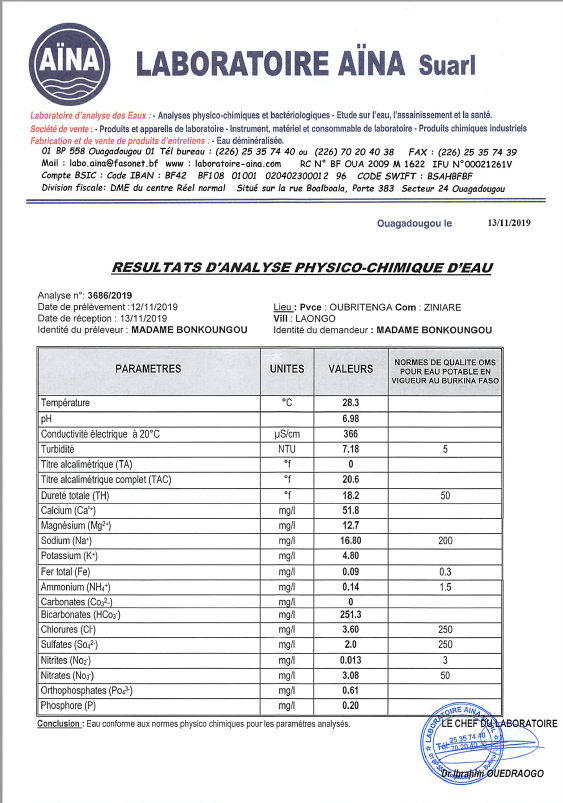
We can fit the pump and build the pump surrounds knowing that people now have access to clean water – safe to drink, to use for cooking, for washing themselves (and their clothes), for the livestock and their crops.
